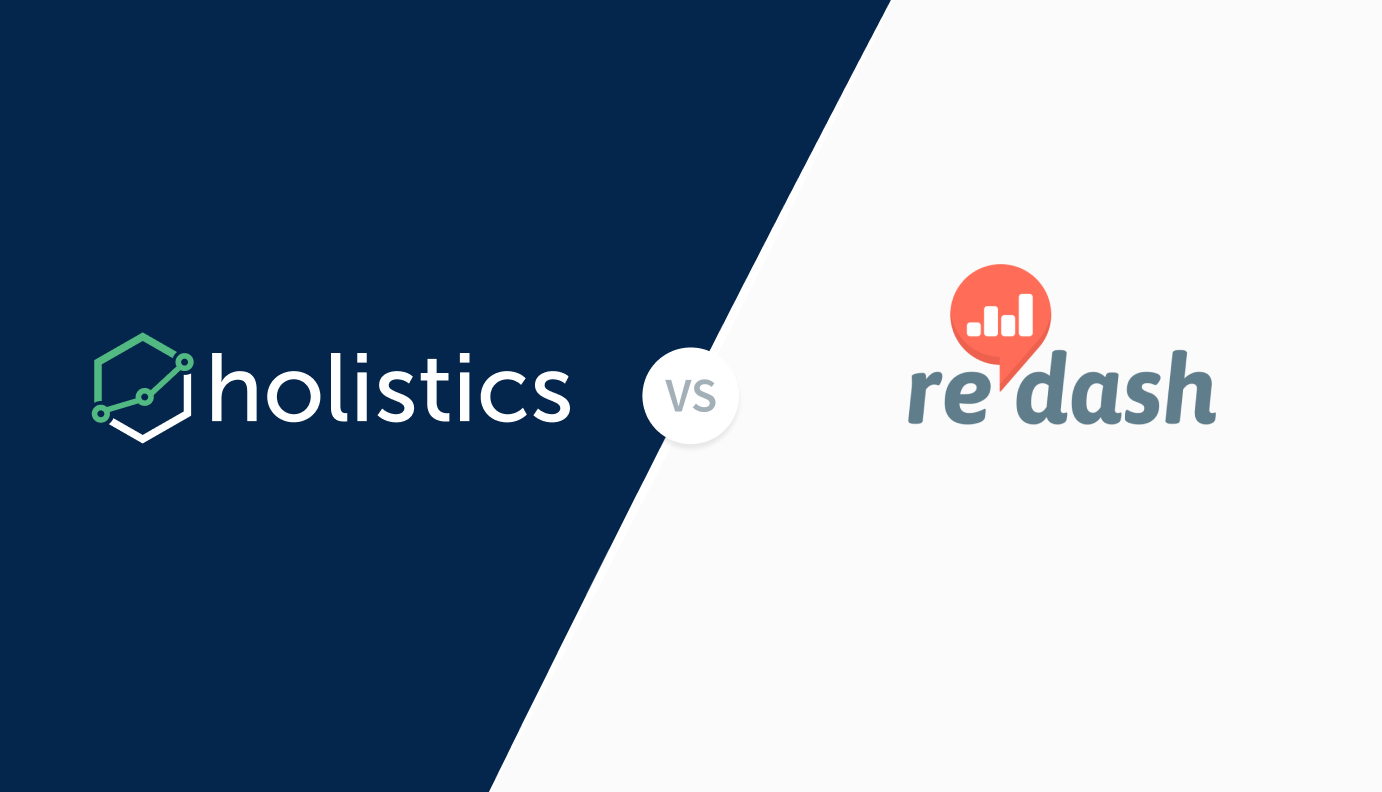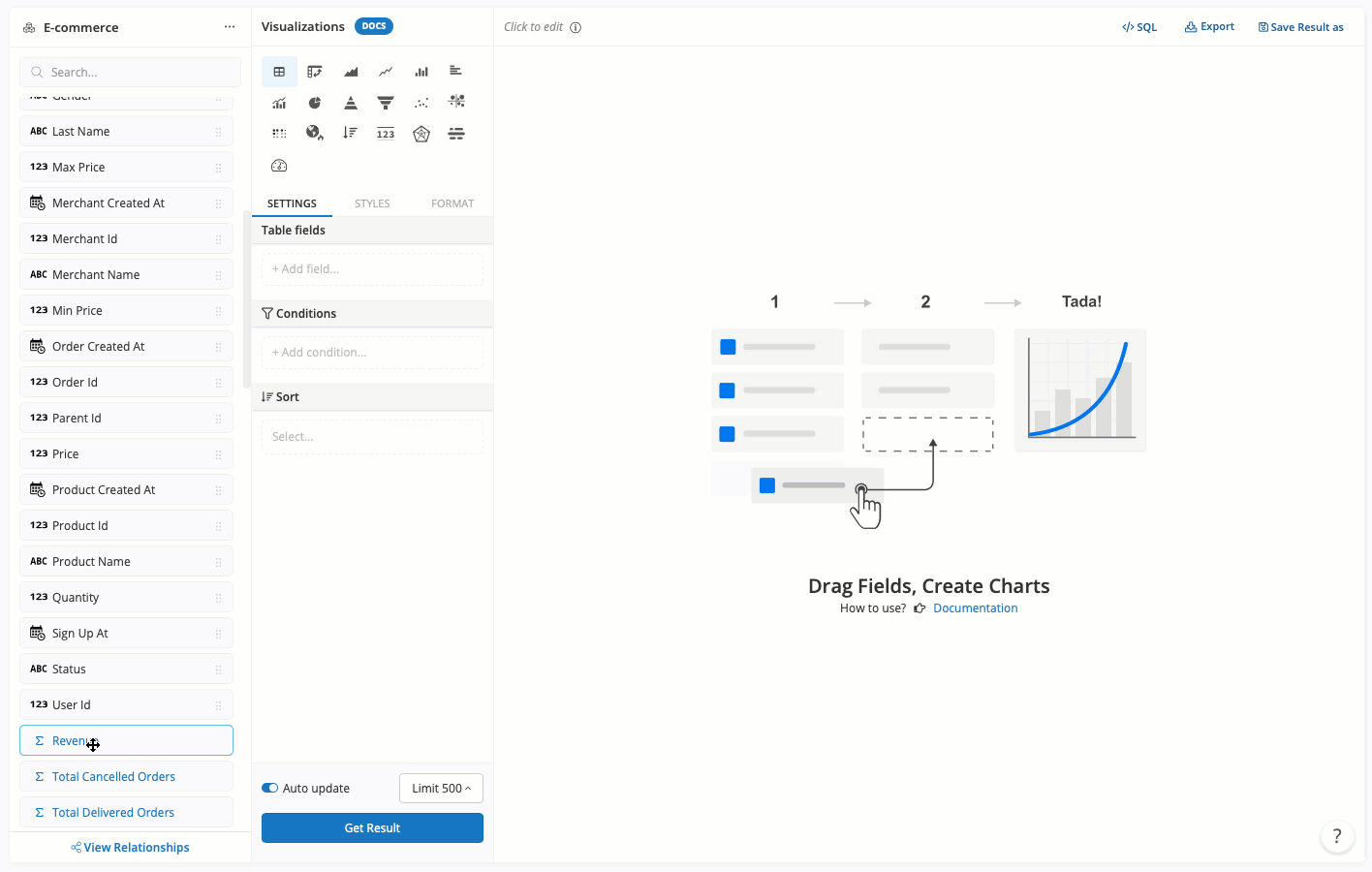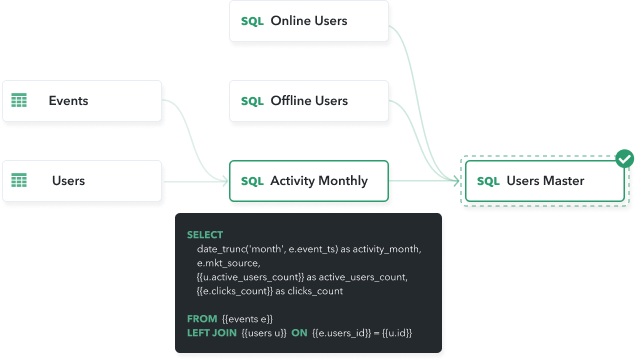Redash limitations and top alternatives
Redash is a good, popular open-source SQL-based BI tool that can be installed easily on local environment to get a simple SQL-to-chart functionality going. Yet as your analytics needs grow, you might face some pain points when using Redash

Redash is a good, popular open-source SQL-based BI tool that can be installed easily on local environment to get a simple SQL-to-chart functionality going. Yet as your analytics needs grow, you might face some pain points when using Redash:
- Need to know SQL: Redash requires your business users to really know SQL languages instead of being able to interact with the data the way they want.
- Support for multiple sources: It works well with a single SQL data source. If you have a large amount of data coming from multiple sources, Redash likely won't work well for you.
- Transformation Pipeline: With Redash, you can only work directly with your database tables, there's little support for transform pipelines.
- Unmanagable: As the number of queries in Redash grow, it's difficult to manage
- Visualization: Very limited number of Visualization Types and each one has very limited configurations (chart styles, colors,...)
- Future Direction: Redash is recently acquired by Databricks, so future development will be biased towards supporting Databricks ecosystem.
In this post, we'll introduce to Holistics — a good alternative to Redash. We'll tell you the pros and cons of Holistics compared to Redash, and highlight a few key functionalities.
Holistics as an alternative to Redash
Holistics.io is a nice BI alternative to Redash. It works similar to Redash in a way that it sends SQL queries to your database to execute, then visualize the resultsets.
However, it's better than Redash because it allows self-service analytics and support a lot more complex functionalities. Its unique feature sits in a unified data modeling layer that it claims to "unify ELT and BI together", allow you to perform the entire end-to-end pipeline.
Similars/Difference to Redash
- Both are built on top of SQL querying engine and both offers a drag-and-drop experience for non-technical users.
- Redash fits only at at the visualization layer, Holistics offer additional ELT capabilities (data preparation).
Pros compared to Redash
- It has a strong data modeling layer that allows handling sophisticated raw data.
- Business users can ask more sophisticated questions using their Explore interface.
- Works well with non-SQL data sources as they offer a mini-ETL experience with common sources (MongoDB, Google Analytics, etc)
- Have an in-built DAG-like transformation layer so that you can transform raw data into aggregated datasets before exploration
- Cloud-based so it doesn't take time to setup.
Cons compared to Redash
- Commercial so it might cost money, as compared to open-source Redash
Pricing
- Free, paid plans start from $200-$500 per month.
Allow self-service discovery of data
Unlike Redash where everyone needs to know SQL to really deep-dive into the data, Holistics allows your business users to perform self-service discovery of data without knowing SQL.

Support joining data from multiple sources
Redash works best when all your data sits in a single SQL database. When there are multiple sources of data, it might not work as well.
With Holistics, you can easily pull data from multiple sources into your data warehouse, and join on them.

Support transformation pipeline
As your data needs grow, you will need to refactor your data into multiple intermediary tables. Redash doesn't allow you to do this easily.
With Holistics, you can set up your entire transformation pipeline easily. Write SQL to build intermediary tables and persist them back into your data-warehouses.

Cloud-based
If you self-host Redash, you probably have run into scenarios where queries that return huge results will simply crash the server. Holistics is cloud-based and memory-optimized, so that your long-running queries won't cause the entire app to crash.
"Holistics provided us the comfort and capability to play with business data from 360 degrees. It was a major transition for us to move from vanilla reports, to reports on which we are fully in control. Plus, I have rarely seen backend tools which are so customer-centric in their designs." - Gaurav Berry, RedDoorz
If you'd like to find out more, read about How Holistics Works, or check out how Holistics helps you carry your whole data team.
What's happening in the BI world?
Join 30k+ people to get insights from BI practitioners around the globe. In your inbox. Every week. Learn more
No spam, ever. We respect your email privacy. Unsubscribe anytime.

